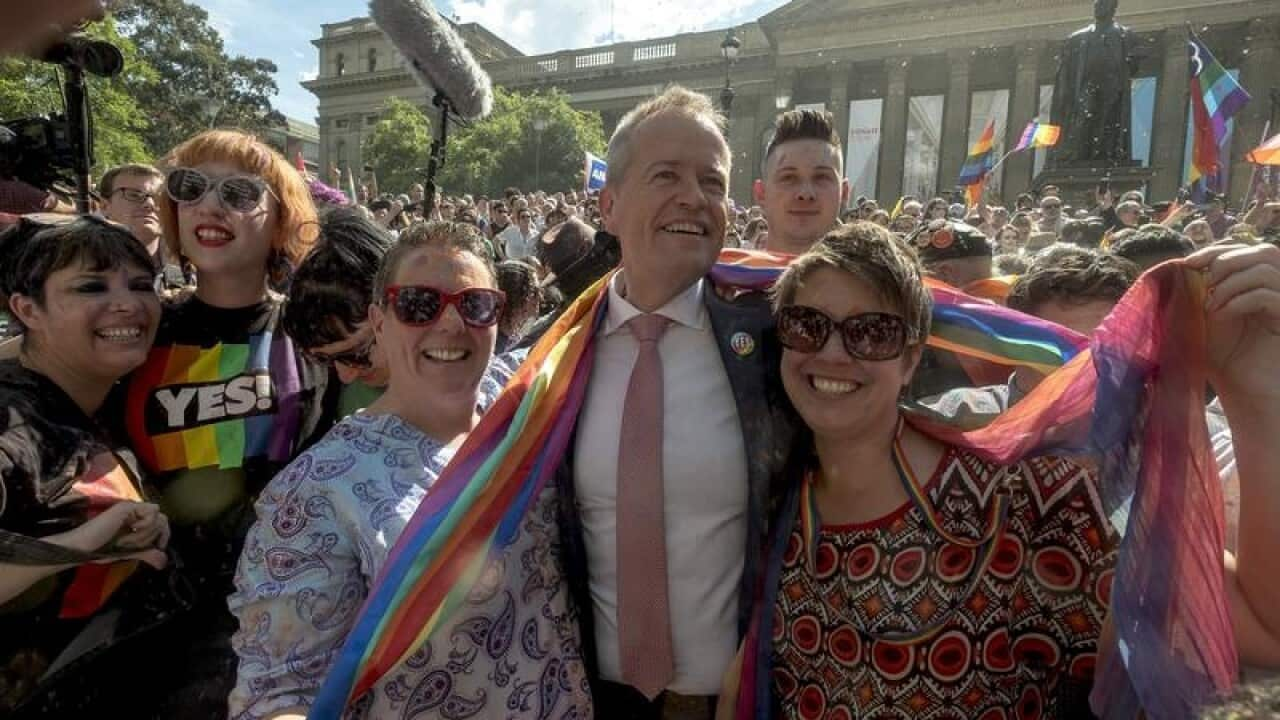Politicians are jostling for pole position on driving the same-sex marriage debate forward as supporters of the 'yes' campaign celebrate their resounding win.
Malcolm Turnbull sprung up minutes after it was announced on Wednesday that 61.6 per cent of eligible Australians voted in favour of marriage equality.
Feeling vindicated by the 79.5 per cent response rate to his voluntary poll, the prime minister urged federal parliamentarians to legalise same-sex marriage before Christmas.
"I say to all Australians, whatever your views on this issue may be, we must respect the voice of the people," he told reporters in Canberra.
"We asked them for their opinion and they have given it to us. It is unequivocal, it is overwhelming."
Bill Shorten popped up moments later to celebrate the "fabulous" result, having opposed the postal survey from the start.
"You shouldn't have had to put up with this survey, but you embraced it," the opposition leader told a marriage equality rally in Melbourne.
"Today we celebrate, tomorrow we legislate."
A majority 'yes' vote was recorded in 133 of the 150 federal electorates across the country, as well as each state and territory.
Liberal Senator Dean Smith, on behalf of a group of cross-party senators, is introducing a private bill to change the Marriage Act, which will be debated on Thursday.
Greens Leader Richard Di Natale is among those throwing their weight behind the legislation.
"At a time when this parliament is perhaps at its lowest ebb, what we have seen through this process is the parliament at its best," Senator Di Natale said.
"This is a resounding result and we are so proud to be standing here today with such an emphatic result that says yes to love and yes to equality."
The prime minister said Dean Smith's bill could "serve the purpose as being the first draft", while Finance Minister Mathias Cormann said it was "a good starting point" in need of changes to boost religious protections.
Senator Di Natale is among those warning the legislation must not be used as a Trojan Horse to entrench discrimination.









